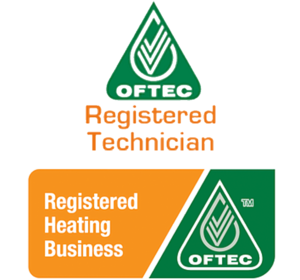A Guide to Agricultural Oil Tanks: What You Need to Know

When it comes to storing oil on your farm, it's crucial to choose the right oil tank that not only meets your specific needs but also adheres to environmental regulations. Let’s explore some of the important things you need to know about agricultural oil tanks; from understanding regulations and choosing suitable locations for your container. By staying informed and compliant, you can ensure safe and responsible oil storage for your agricultural operations.
Understanding agricultural oil storage regulations
To protect the environment and ensure compliance, it's important to understand the specific regulations for storing oil on agricultural properties. These regulations differ from those for domestic or commercial oil storage. Familiarize yourself with the Water Resources (Control of Pollution) (Silage, Slurry, and Agricultural Fuel Oil) (England) Regulations (SSAFO) to ensure your oil tank meets the necessary requirements.
Choosing suitable locations for oil storage on farms
Selecting an appropriate location to install an oil storage tank is vital to prevent environmental damage in case of leaks. The regulations state that the tank should be at least 10 meters away from any inland or coastal water access. Avoid areas near land drains, dry ditches, or other water sources unless you have an exemption. You should always seek advice from professionals or the Environment Agency if you're unsure about the best location.

Types of containers for agricultural oil storage
Oil for agricultural purposes should be stored in above-ground oil tanks or drums that meet ISO 9000 standards and have a minimum life expectancy of 20 years with proper maintenance. We would always recommend installing your oil tank on a robust, long-lasting concrete or slab base to mitigate any chance of oil leaking into the ground should your tank succumb to any damage. If you prefer underground storage, you must follow the Defra Groundwater Protection Code rules. Ensure the chosen tank is bunded or has secondary containment measures to minimize the risk of leaks and spills.
Exemptions for older oil storage installations
If your farm's oil storage container was constructed before March 1991 or completed under a contract entered into before September 1991, it may be exempt from current regulations. However, this exemption does not absolve you from environmental responsibility, and you should always ensure that your oil tank is fit for purpose. The Environment Agency can still require you to bring your storage up to code if there is a significant pollution risk, and it may be the case that you require a new oil tank installation.
How can CT Tanks help?
By being aware of the regulations and guidelines for agricultural oil storage, you can protect the environment while meeting legal requirements. Choose the right oil tank, select suitable locations, and understand exemptions for older installations. Remember, compliance is crucial. Contact CT Tanks today for professional assistance and ensure safe and responsible oil storage on your farm.
Posted on May 3rd 2023


